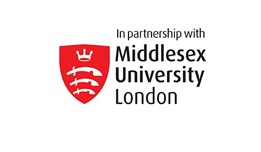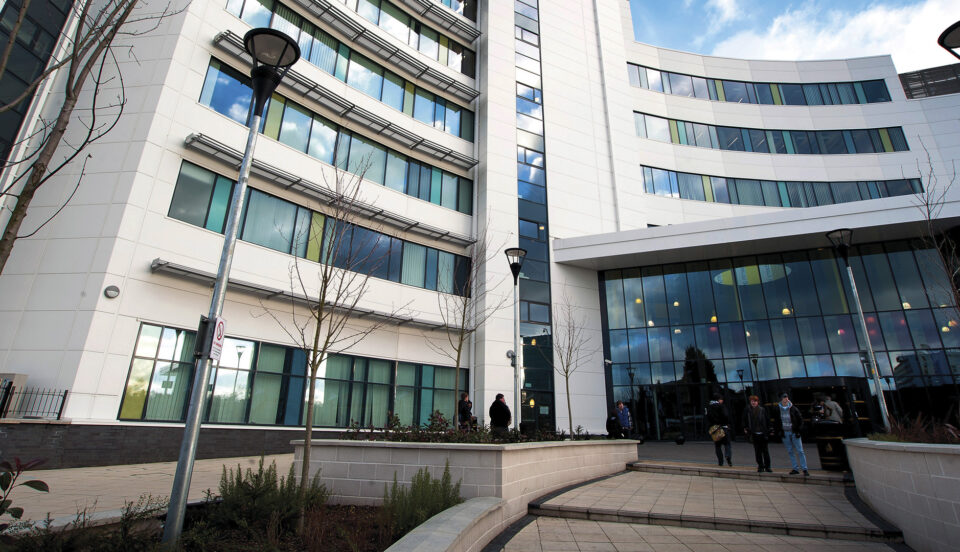
The BSc (Hons) in Counselling (top-up) has been specifically designed for practicing counsellors already qualified to diploma or foundation degree level and working in paid employment, private practice or a voluntary setting.
It provides a unique opportunity for counsellors to deepen their understanding of counselling theory and practice, to gain more understanding of client issues and how to work with them, undertake a research project on a research question of their own choosing, and gain a degree at the same time.
It also provides a forum where counsellors from a variety of orientations and backgrounds will be able to share information and experience to their mutual advantage.
Employers are increasingly asking for counsellors with a degree in counselling, or with BACP accreditation or both.
Graduates also progress to postgraduate programmes or go on to more specialised training, i.e., in couples counselling, drug and alcohol addiction or working with children and adolescents.
The aims of the programme are to:
- expand students’ appreciation and understanding of a range of counselling approaches other than the one in which they have completed their training
- develop students’ ability to critically reflect on the particular nature of their clinical practice in light of their individual training and personal experiences, and their responses to these.
- enable students to understand the ways in which they can respond effectively in their clinical practice to the demands of working in particular settings and cultural contexts.
- develop students’ knowledge and understanding of the BACP Ethical Framework as an example of a relevant professional ethical policy
- develop students’ engagement with systematic research in counselling by fostering their critical understanding of relevant research methods and enabling them to undertake a suitable research project in an area of personal interest.
- foster students’ self-awareness of their current capacities as counsellors and identify future continuing professional development possibilities in support of their professional aspirations.
- enable students with the appropriate capacities to achieve a graduate-level award in counselling, enhancing their opportunities to secure future employment and training at levels that they may have found hard to access as non-graduates.
What you'll learn
You will study four modules:
Research Proposal (15 credits) –
This module aims to ensure that students apply consistently a comprehensive, in-depth and research-informed body of knowledge in their practice and use research literature on the impact of the therapeutic alliance to enhance relationships with clients. It will equip you with the methods and knowledge that enable independent research.
Personal and Professional Development in Practice (30 credits) –
This module aims to extend students’ understanding of the emergence and development of their personal and professional identity as counsellors considering their personal, training, and clinical experience to date, their current training, clinical commitments, and future aspirations.
Research Informed Practice (45 credits) –
This module aims to successfully complete a substantial empirical research project based on an approved research proposal and to reflect on the outcomes of the research project and the implications for the counselling profession.
Theory in Practice (30 credits) –
This module aims to provide an overview of the theory underpinning key modalities prevalent in current counselling practice and critically reviews their preferred core model, its strengths and limitations and how other models of theory and practice might be integrated. You will reflect on how new knowledge (area of special interest) can support development of clinical practice.
How you'll learn and be assessed
The course requires one day attendance in college per week, 80 hours counselling practice in a placement or in private practice, one-to-one or group supervision in line with BACP guidelines leading to a satisfactory supervisor’s report on completion, a significant amount of independent reading and research which in all amounts to the equivalent of full-time study.
Progression
You could progress to postgraduate programmes or go on to more specialised training, for instance in couples counselling, drug and alcohol addiction or working with children and young people.
You could become a private practice counsellor, pastoral worker, counsellor for a voluntary agency, the NHS or other statutory agency.
Counsellors who graduate from this programme and who are already in paid employment will be eligible for a greater variety of counselling work.
Entry requirements
- A foundation degree or Counselling Diploma Level 5 (applicants with a CPCAB Level 4 Diploma may be acceptable with Accredited Prior Learning at level 5 or above.
- Foundation Degree in Counselling
- In addition, 450 hours of counselling training, a minimum of 100 hours of supervised counselling practice and 60 hours of personal counselling.
Additional information
Home/EU* Fee for September 2025 entry: £8,000 per year.
Please note: Tuition fees are published for the first year of entry only and may increase in subsequent years both for new and continuing students in line with an inflationary amount determined by the Office for Students.
*Fee information for European Union (EU) students: If your course starts on or after the 1st August 2021, you will no longer be eligible for financial support from Student Finance England unless you meet one of the following criteria:
- you are able to benefit from the citizens’ rights agreements
- you are an Irish national living in the UK or Republic of Ireland – benefits of Irish nationals under Common Travel Area guidance arrangement will continue
Additional costs include:
Optional trips for work experience, especially if you wish to volunteer overseas, as some of our previous students have done. Additional printing over and above the £10 allowance provided by the college, and the cost of books that you might wish to purchase.
We strongly recommend that you purchase a laptop for your course.
If you need any further information or guidance, please contact us at HE@activatelearning.ac.uk
We recommend that you budget £100 a year for additional costs such as for stationary to undertake your studies. You can borrow textbooks and access journals from the recommended reading lists most of these are available from the Learning Resource Centre. If you choose to buy textbooks, they may cost up to £60 each.
Specific additional costs in respect of this course are:
- BACP student membership £82 per year
- supervision at clinical placements may be free for certain agencies but could cost £50 per hour for approximately 30 hours.
- personal therapy from approximately £30 to £45 per hour is recommended but not compulsory.
- Indemnity Insurance may be free for certain agencies but could cost on average £50 in total.
- travel expenses to/from placement, therapy, and supervision venues
Activate Learning recognises that funding is a big part of your decision to embark on a higher education programme. You will be aware of, should budget for, and be able to meet, all of the pre-requisite costs associated with your course, eg course fees, cost of necessary materials or activities (such as personal therapy for counselling students) and regular travel to and from college. For eligible students, we have put in place arrangements in the form of bursaries and funds to support you with other course-related expenditures during the term of your studies.
